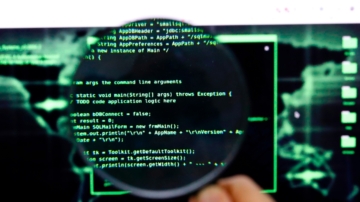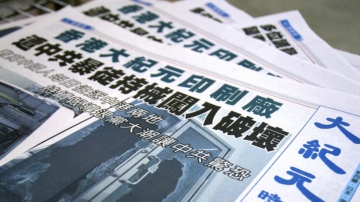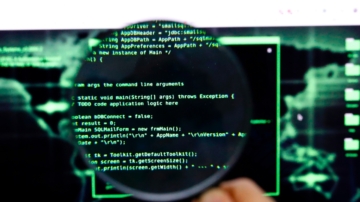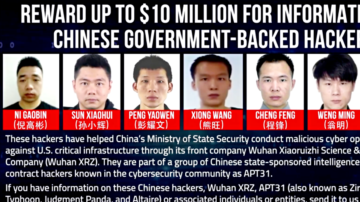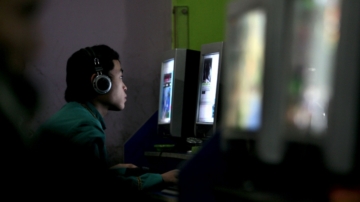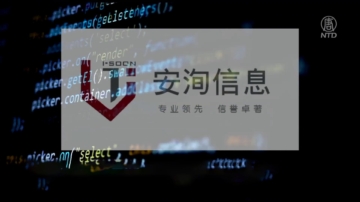【新唐人2011年5月23日讯】一周前美国政府开始执行《网路空间国际策略》,保护网路世界的信息自由与安全。而大陆网民回馈,近来中共当局加紧封网,突破封锁没有以前容易。不过,关注中国人权的网站最近在报告中提出:中国网民的社会影响力日益加大。那么,破网与封网之间,政府与网民间是如何较量的呢?来看看海内外民众的说法。
中国维权网;5月20号发表名为《网路自由拉锯战持续升级》的报告,报告指出,中国网民和网路在例如浙江温州乐(音:月)清钱云会命案、江西宜黄强拆自焚事件等许多事件中,展示出强大的力量。
一周前(5月16日)美国联邦政府中六个重要部门,共同宣布了《网路空间国际策略》。
白宫网路安全办公室主任霍华德.史密特(Howard Schmidt):“在这后半个小时内,你们听到了来自国家部门,司法,商务部,国土安防局以及白宫的声音,都在谈论如何将全球网路空间连结起来的计划。”
据中国互联网信息中心公布,至去年(2010年)12月底,中国网民有4.57亿,还有大约3.53亿人经常使用即时通信工具。在美国政府公布了《网路空间国际策略》之后,有大陆舆论指这是针对中国而来。
天网义工、大陆网路专家蒲飞:“很多人说,美国支援网路自由与其相关的政策是在对抗中国,我个人认为不是,他们只是对抗的中国(共)政府的不合理政策。”
美国传统基金会高级研究员成斌表示,有很多的报告显示,中共的骇客入侵美国和其他外国政府的系统等等。中国问题专家、《中国事务》网站总编伍凡认为,美国的新国策是:他们在回击侵犯他们信息安全和自由的对手。
伍凡:“这个文件、这个会议是个非常重大的事件,这标志着美国把这个信息战又提高到新的高度。美国受到攻击以外,美国也开始反击。”
据《网路自由拉锯战持续升级》的报告公布,中共当局一方面严格管制各类网路,另一方面封锁网路、断网,甚至攻击海外网站和直接迫害网路发言者。最近有大陆网友回馈,当局加紧了封网,突破网路封锁不如以前容易了。
动态网技术公司总裁比尔.夏和他的团队﹔开发出了美国国会认可的最有效的翻墙软件之一“自由门”。他表示,很快将推出破网软件的新版本。
比尔.夏:“互联网从它已出现就是基于一种开放性的,它(中共)现在这种封锁只是一种暂时的,但是网路当中还是有无穷的可能性的。最近确实是网路封锁比较严重,我们现在很快会推出新的版本。”
比尔.夏指出,最近这一年来,大陆封锁网路,不仅遮罩越来越多的敏感信息,而且也阻断了包含经济和学术活动的网站交流。
蒲飞主动维护的“六四天网”,就是要和无权、无名、无势的弱者同行。他对于破网软件的开发和当局封锁之间的较量结果,相当乐观。
蒲飞:“中国是封锁对政府不利的政治信息,这是个被动防守行为,技术的自由主义者同盟,才是网路上真正的发明家,破网至少会在很长一段时间是胜利的。”
《美国之音》在报导《网路自由拉锯战持续升级》的报告时,引用大陆资深媒体人李大同的分析,他认为,互联网言论自由的发展最后是“不可抗拒的历史潮流”。
新唐人记者赵心知、周天采访报导。
New Anticensorship Software Coming
Last week, the U.S. government began to implement
International Strategy for Cyberspace.
Recently, the Chinese Communist Party (CCP)
intensified Internet censorship, and it is not as easy
as before to get on overseas websites.
However, some rights websites indicated
that Chinese netizens are getting more influential.
How do authorities and netizens compete online?
A report by the Chinese Human Rights Defenders
(CHRD) from May 20 indicates,
that the cyber war in China escalates
and netizens have exhibited a greater power.
Two examples are the Qian Yunhui case in Leqing
and the self-immolation case in Yihuang, Jiangxi.
A week ago, six U.S. departments jointly launched
the International Strategy for Cyberspace.
Howard Schmidt, the White House Cyber-Security
Coordinator: “The last half an hour you have heard
from the Departments of State, Justice, Commerce,
Homeland Security Defense and the White House,
all speaking of a strategy that brings together
all our international world regarding cyberspace.”
According to China Internet Network Info Center,
by the end of 2010, China had 457 million netizens,
with 353 million constantly using instant messengers.
After the U.S. published the cyberspace strategy,
some Chinese media said it targeted the CCP.
Pu Fei, an online writer in China: “Some said
that U.S.' cyberspace strategy and related policies
were to contend China. Personally, I believe not.
It was only to resist CCP's unreasonable policies.”
Cheng Bin, senior researcher at Heritage Foundation
said many reports indicate that the CCP's hackers
attacked the systems of the U.S. and other countries.
Wu Fan, editor-in-chief of China Affairs magazine,
believes that U.S.' new policy retaliates the enemies,
that infringe their information security and freedom.
Release of this document is a very important event.
It marked new heights in the U.S. cyber war.
U.S. are fighting back after suffering cyber attacks.
The CHRD report said, the CCP authorities not only
intensify the Internet censorship, but also disconnect
the Internet in some areas, and even attack overseas
websites and persecute those who spoke their minds.
Some netizens said Internet circumvention
was not as easy recently as before.
Bill Xia, president of DynaWeb that offered Freegate,
the most effective software in circumventing
censorship, as acknowledged by the U.S. Congress,
said a new version of the software is coming soon.
Bill Xia: “The Internet is of open nature to begin with.
The CCP's blockade is only temporary. There are
unlimited possibilities to counter the blockade.
The recent blockade has been quite severe,
but we will soon launch our new version.”
Bill Xia said, over the past year CCP's censorship
not only blocks more sensitive information, but also
shields some economic and academic websites.
Pu Fei, who maintains 64tianwang.com,
a website for powerless people, said he is optimistic
about the outcome of the contend between the blockade
and the censorship-circumventing software upgrade.”
Pu Fei: “The CCP blocks the political information
authorities do not want, but this is a passive action.
Internet freedom supporters are the real inventers
and their censorship-circumventing technology
will be victorious for a long time to come.”
Li Datong, a senior journalist in China, said to VOA,
that the development of Internet freedom of speech
will eventually be an “unstoppable historical trend.”
NTD reporters Zhao Xinzhi and Zhou Tian
中国维权网;5月20号发表名为《网路自由拉锯战持续升级》的报告,报告指出,中国网民和网路在例如浙江温州乐(音:月)清钱云会命案、江西宜黄强拆自焚事件等许多事件中,展示出强大的力量。
一周前(5月16日)美国联邦政府中六个重要部门,共同宣布了《网路空间国际策略》。
白宫网路安全办公室主任霍华德.史密特(Howard Schmidt):“在这后半个小时内,你们听到了来自国家部门,司法,商务部,国土安防局以及白宫的声音,都在谈论如何将全球网路空间连结起来的计划。”
据中国互联网信息中心公布,至去年(2010年)12月底,中国网民有4.57亿,还有大约3.53亿人经常使用即时通信工具。在美国政府公布了《网路空间国际策略》之后,有大陆舆论指这是针对中国而来。
天网义工、大陆网路专家蒲飞:“很多人说,美国支援网路自由与其相关的政策是在对抗中国,我个人认为不是,他们只是对抗的中国(共)政府的不合理政策。”
美国传统基金会高级研究员成斌表示,有很多的报告显示,中共的骇客入侵美国和其他外国政府的系统等等。中国问题专家、《中国事务》网站总编伍凡认为,美国的新国策是:他们在回击侵犯他们信息安全和自由的对手。
伍凡:“这个文件、这个会议是个非常重大的事件,这标志着美国把这个信息战又提高到新的高度。美国受到攻击以外,美国也开始反击。”
据《网路自由拉锯战持续升级》的报告公布,中共当局一方面严格管制各类网路,另一方面封锁网路、断网,甚至攻击海外网站和直接迫害网路发言者。最近有大陆网友回馈,当局加紧了封网,突破网路封锁不如以前容易了。
动态网技术公司总裁比尔.夏和他的团队﹔开发出了美国国会认可的最有效的翻墙软件之一“自由门”。他表示,很快将推出破网软件的新版本。
比尔.夏:“互联网从它已出现就是基于一种开放性的,它(中共)现在这种封锁只是一种暂时的,但是网路当中还是有无穷的可能性的。最近确实是网路封锁比较严重,我们现在很快会推出新的版本。”
比尔.夏指出,最近这一年来,大陆封锁网路,不仅遮罩越来越多的敏感信息,而且也阻断了包含经济和学术活动的网站交流。
蒲飞主动维护的“六四天网”,就是要和无权、无名、无势的弱者同行。他对于破网软件的开发和当局封锁之间的较量结果,相当乐观。
蒲飞:“中国是封锁对政府不利的政治信息,这是个被动防守行为,技术的自由主义者同盟,才是网路上真正的发明家,破网至少会在很长一段时间是胜利的。”
《美国之音》在报导《网路自由拉锯战持续升级》的报告时,引用大陆资深媒体人李大同的分析,他认为,互联网言论自由的发展最后是“不可抗拒的历史潮流”。
新唐人记者赵心知、周天采访报导。
New Anticensorship Software Coming
Last week, the U.S. government began to implement
International Strategy for Cyberspace.
Recently, the Chinese Communist Party (CCP)
intensified Internet censorship, and it is not as easy
as before to get on overseas websites.
However, some rights websites indicated
that Chinese netizens are getting more influential.
How do authorities and netizens compete online?
A report by the Chinese Human Rights Defenders
(CHRD) from May 20 indicates,
that the cyber war in China escalates
and netizens have exhibited a greater power.
Two examples are the Qian Yunhui case in Leqing
and the self-immolation case in Yihuang, Jiangxi.
A week ago, six U.S. departments jointly launched
the International Strategy for Cyberspace.
Howard Schmidt, the White House Cyber-Security
Coordinator: “The last half an hour you have heard
from the Departments of State, Justice, Commerce,
Homeland Security Defense and the White House,
all speaking of a strategy that brings together
all our international world regarding cyberspace.”
According to China Internet Network Info Center,
by the end of 2010, China had 457 million netizens,
with 353 million constantly using instant messengers.
After the U.S. published the cyberspace strategy,
some Chinese media said it targeted the CCP.
Pu Fei, an online writer in China: “Some said
that U.S.' cyberspace strategy and related policies
were to contend China. Personally, I believe not.
It was only to resist CCP's unreasonable policies.”
Cheng Bin, senior researcher at Heritage Foundation
said many reports indicate that the CCP's hackers
attacked the systems of the U.S. and other countries.
Wu Fan, editor-in-chief of China Affairs magazine,
believes that U.S.' new policy retaliates the enemies,
that infringe their information security and freedom.
Release of this document is a very important event.
It marked new heights in the U.S. cyber war.
U.S. are fighting back after suffering cyber attacks.
The CHRD report said, the CCP authorities not only
intensify the Internet censorship, but also disconnect
the Internet in some areas, and even attack overseas
websites and persecute those who spoke their minds.
Some netizens said Internet circumvention
was not as easy recently as before.
Bill Xia, president of DynaWeb that offered Freegate,
the most effective software in circumventing
censorship, as acknowledged by the U.S. Congress,
said a new version of the software is coming soon.
Bill Xia: “The Internet is of open nature to begin with.
The CCP's blockade is only temporary. There are
unlimited possibilities to counter the blockade.
The recent blockade has been quite severe,
but we will soon launch our new version.”
Bill Xia said, over the past year CCP's censorship
not only blocks more sensitive information, but also
shields some economic and academic websites.
Pu Fei, who maintains 64tianwang.com,
a website for powerless people, said he is optimistic
about the outcome of the contend between the blockade
and the censorship-circumventing software upgrade.”
Pu Fei: “The CCP blocks the political information
authorities do not want, but this is a passive action.
Internet freedom supporters are the real inventers
and their censorship-circumventing technology
will be victorious for a long time to come.”
Li Datong, a senior journalist in China, said to VOA,
that the development of Internet freedom of speech
will eventually be an “unstoppable historical trend.”
NTD reporters Zhao Xinzhi and Zhou Tian


